All Stories
-
 Health & Medicine
Health & MedicineScience may get sidelined in artificial turf debate
Despite news reports about the potential harms of artificial turf, studies find synthetic fields have few health risks, although lead levels may be elevated in older fields.
By Beth Mole -
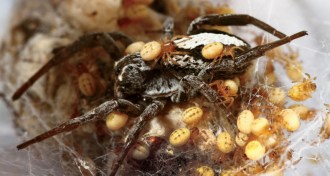 Animals
AnimalsWhen mom serves herself as dinner
For this spider, extreme motherhood ends with a fatal family feast.
By Susan Milius -
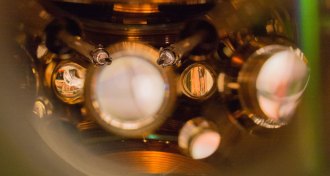 Quantum Physics
Quantum PhysicsAtomic clock will keep precise time for 15 billion years
The world’s most precise atomic clock will not lose or gain a second in roughly 15 billion years.
By Andrew Grant -
 Physics
PhysicsAn even more precise atomic clock
An atomic clock described April 21 in Nature Communications is about three times as precise as its record-setting predecessor.
By Andrew Grant -
 Climate
ClimateMonster storm dominates view from space station
A stunning photograph from the International Space Station captures the size and power of Typhoon Maysak, which clamored through the Western Pacific.
-
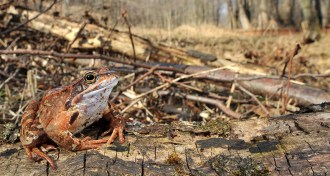 Animals
AnimalsWhether froglets switch sexes distinguishes ‘sex races’
Rana temporaria froglets start all female in one region of Europe; in another region, new froglets of the same species have gonads of either sex.
By Susan Milius -
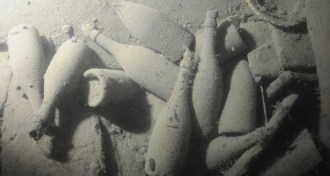 Chemistry
ChemistryShipwrecked bubbly gives chemists a taste of the past
Champagne preserved at the bottom of the Baltic Sea for 170 years has given chemists a glimpse of past winemaking methods.
By Beth Mole -
 Tech
TechSmart card taps track clogs on London’s Tube
To make public subway systems more efficient, researchers track smart card taps and flag problem stations.
-
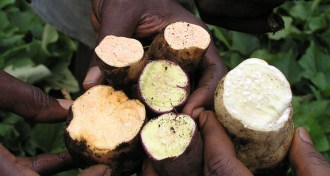 Plants
PlantsBits of bacterial DNA naturally lurk inside sweet potatoes
Samples of cultivated sweet potatoes worldwide carry DNA from Agrobacterium cousin of bacterium used for GMOs.
By Susan Milius -
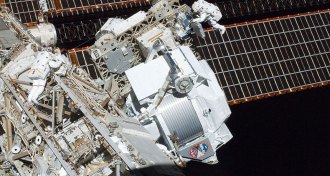 Astronomy
AstronomyCosmic rays misbehave in space station experiment
A puzzling feature in a new cosmic ray census may force physicists to rethink which cosmic objects send these speedy particles hurtling across the galaxy.
By Andrew Grant -
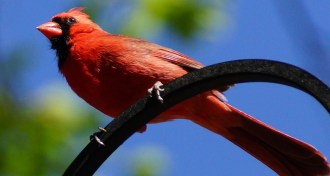 Ecosystems
EcosystemsBefore you plant this spring, consider the birds
A study of Chicago neighborhoods finds that the plants in private yards influence the variety of birds that live in the area.
-
 Astronomy
AstronomyColor differences could recalibrate cosmic acceleration rate
Color differences in a class of supernovas could lower estimates of how much dark energy is in the universe.